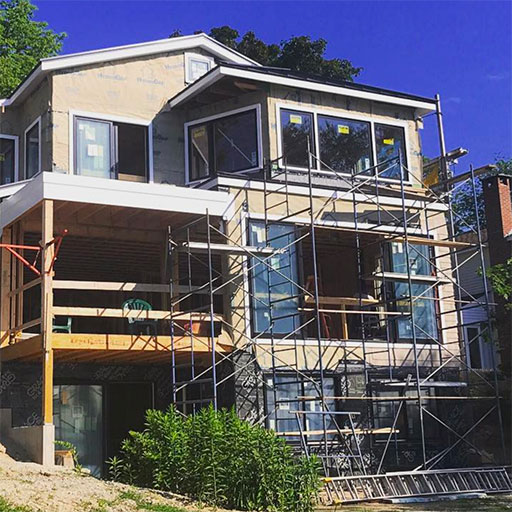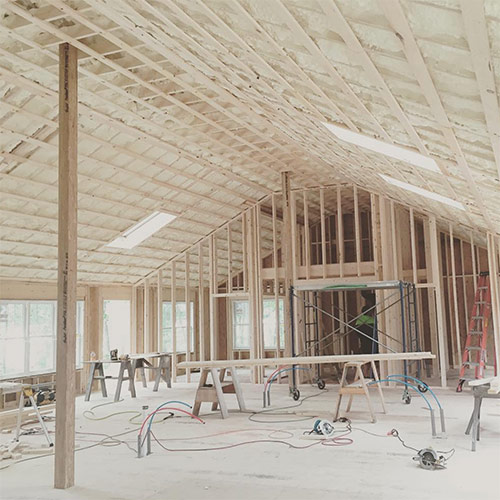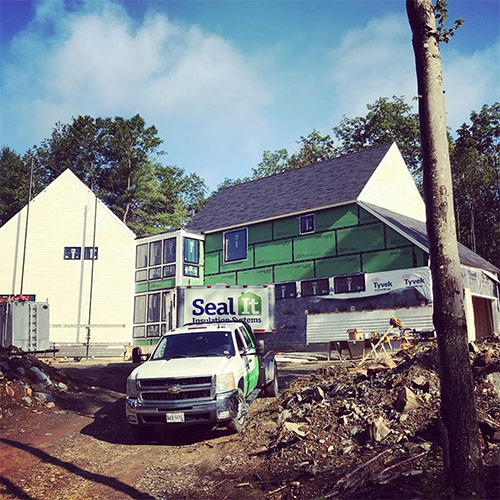Tired of High Heating or Cooling Bills?
Homeowners lose money every minute due to poor insulation, which leads to drafts, air leakage, and energy loss.
Don’t let heat escape or unwanted cold infiltrate your Maine home — say goodbye to outdated insulation solutions and hello to efficient spray foam insulation.
Our experienced spray foam installers take pride in creating a thermal envelope design that maximizes savings on heating, cooling, and ventilation equipment. That means no more worrying about sagging or settling – spray foam can maintain its insulation properties even with unexpected leaks.
Seal It Insulation offers homeowners a foolproof approach that eliminates the guesswork and provides long-term peace of mind. Our spray foam insulation provides an unbeatable seal that locks in energy efficiency and comfort. With Seal It Insulation, you can stop worrying about drafts, air infiltration, heat loss, condensation formation, and more.
What are the Benefits of Spray Foam Insulation?
Spray foam insulation offers a range of benefits and solutions that make it a terrific choice for Maine homeowners and businesses alike. Here are some key advantages:
- Energy Efficiency: Spray foam insulation forms an airtight seal, minimizing air leakage and reducing energy loss, helping to maintain a consistent indoor temperature, and reducing the need for excessive heating or cooling.
- Enhanced Comfort: By sealing gaps and cracks, spray foam insulation prevents drafts and cold spots, providing enhanced comfort throughout the year. It also reduces noise transmission from outside, creating a quieter indoor environment.
- Durability and Longevity: Spray foam insulation is highly durable and long-lasting. It doesn’t sag or settle over time, maintaining its insulation performance for many years. This can save homeowners from the hassle and expense of frequent insulation replacements.
Get a Free Home Insulation Quote
You’ll Be Amazed at the Savings & Comfort
Using spray foam can revolutionize the way you insulate your property. That means no more settling for conventional methods that leave gaps and inefficiencies.
Instead, we’ll ensure a rock-solid air barrier that seals every nook and cranny — keeping you warm in winter, cool in summer, and protected from moisture year-round.
At Seal It, we provide unmatched service to our valued customers. And as a Top Rated Local® Insulation Installer in Maine, you won't be disappointed. Contact us now for a free quote and take the first step towards a cozier, more energy-efficient home.








